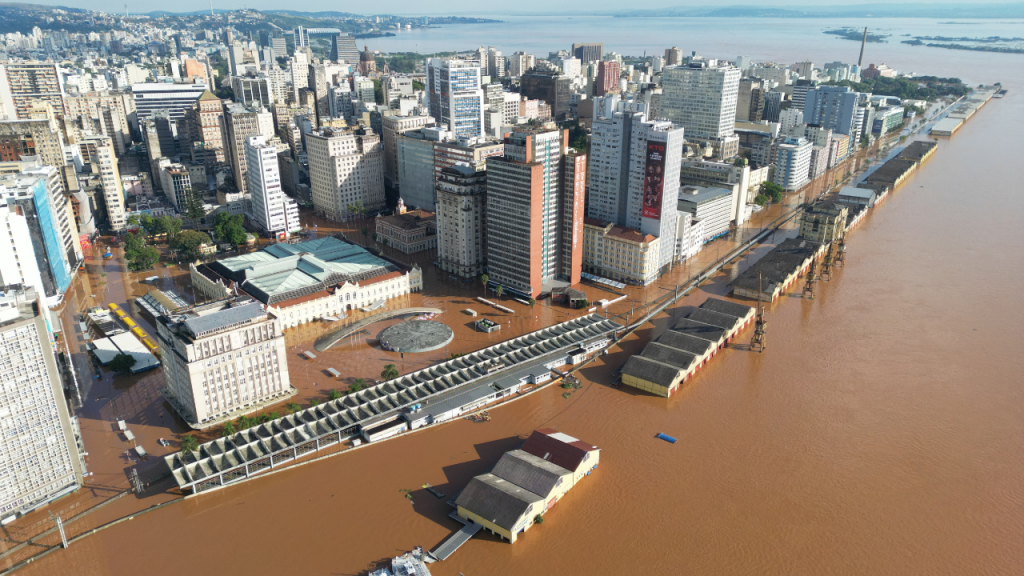Tens of thousands of Haitian and Venezuelan refugees in Rio Grande do Sul, Brazil, are facing challenges in rebuilding their lives after severe flooding. The United Nations High Commissioner for Refugees reports that there are around 46,000 refugees in the state, including 29,000 Venezuelans and 12,000 Haitians. Rio Grande do Sul was the third-highest recipient of refugees in a government resettlement program for those fleeing Venezuela.
Most of the refugees are living in Sarandi, a neighborhood in Porto Alegre that was heavily affected by flooding after a dike collapsed. Many of the 26,042 Sarandi residents whose homes were flooded are now staying in shelters around the city. The majority of these refugees are undocumented, having left everything behind quickly as the floodwaters rose. This has added to their worries and challenges as they try to rebuild their lives in the wake of the disaster.
One example is Carina Gonzalez, a 27-year-old Venezuelan refugee who had to leave behind important documents when fleeing her home in chest-deep water. She, along with her husband Xavier, had to leave everything behind and are now facing the uncertainty of how to get to work. They crossed into Brazil in 2018, escaping political tensions and economic crisis in Venezuela. Now, they are once again experiencing upheaval as they try to navigate the aftermath of the flooding.
The situation in Rio Grande do Sul highlights the ongoing struggles faced by refugees who have fled their countries to seek safety and better opportunities. The flooding has compounded the challenges faced by these already vulnerable populations, many of whom are living in precarious conditions in shelters. As they work to rebuild their lives in the aftermath of the disaster, they are in need of support and assistance to ensure their well-being and safety.
It is clear that more needs to be done to support refugees and migrants, particularly in times of crisis such as natural disasters. Adequate resources and services must be provided to help them overcome the challenges they face and rebuild their lives. The international community, governments, and humanitarian organizations need to work together to ensure that refugees and migrants receive the support they need to recover and thrive in their new communities.
As the refugees in Rio Grande do Sul continue to rebuild their lives in the wake of the flooding, it is crucial that their needs are met and that they are supported in their efforts to overcome the challenges they face. By working together to provide assistance and resources, we can help these vulnerable populations recover and build a better future for themselves and their families.













